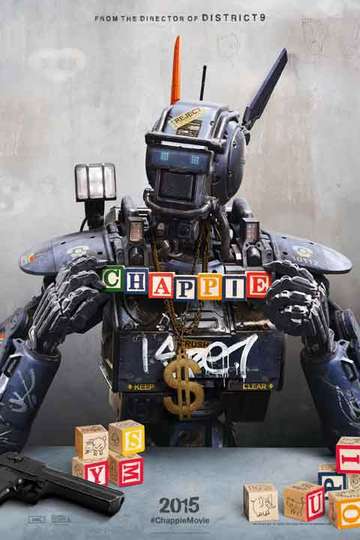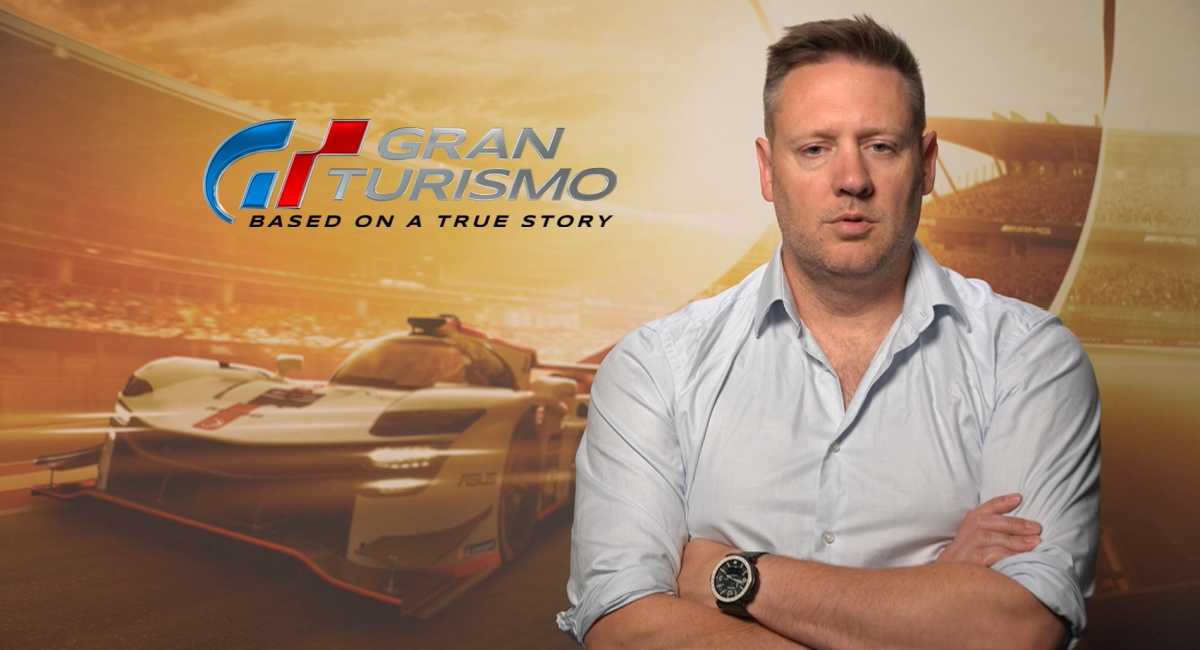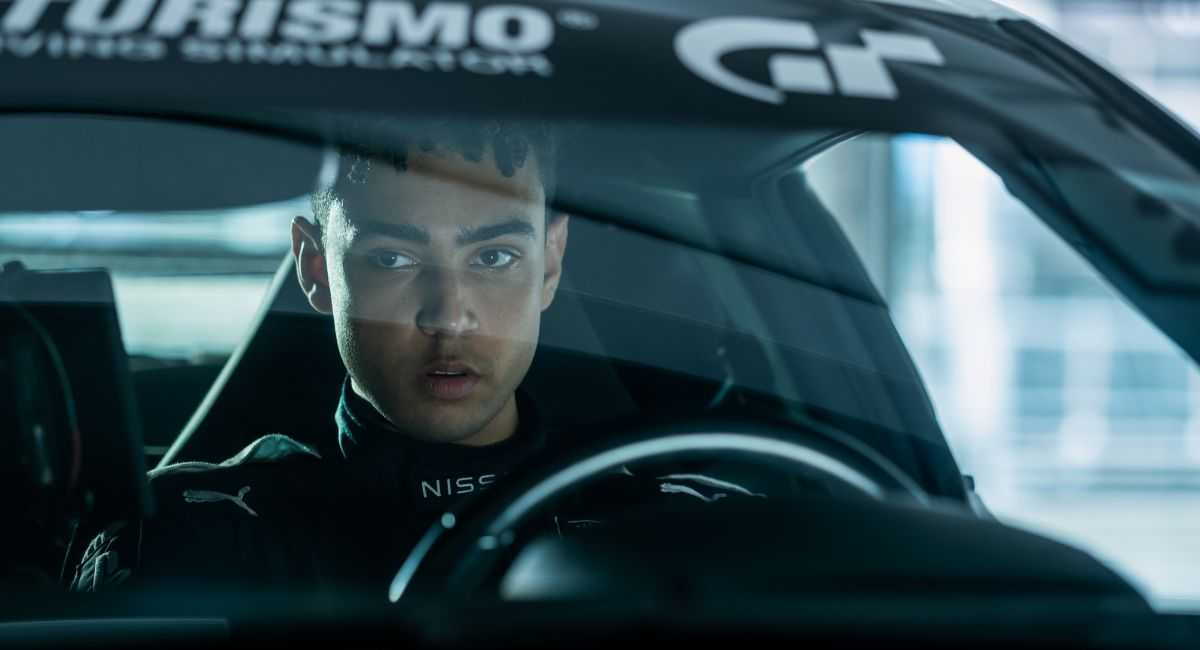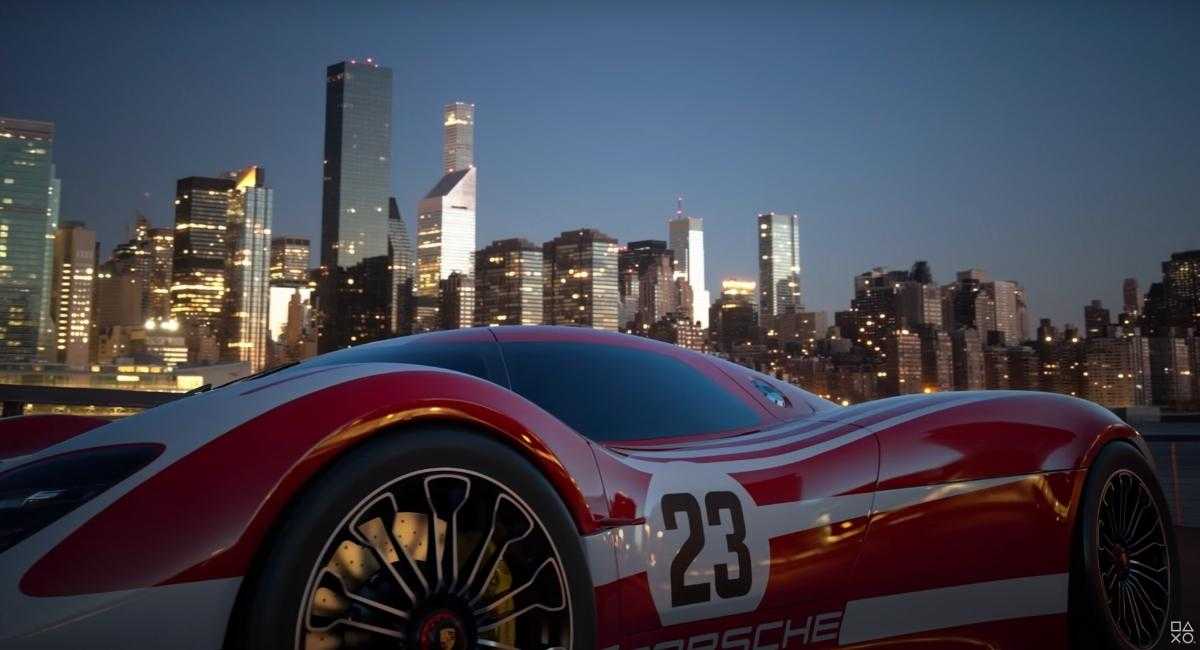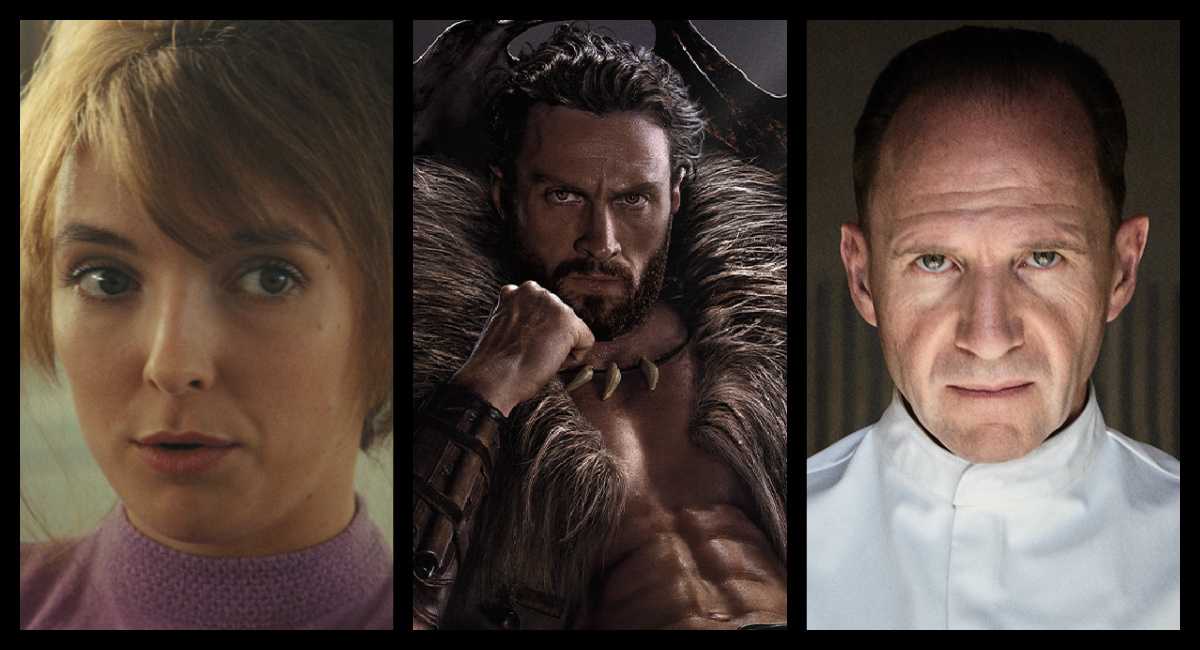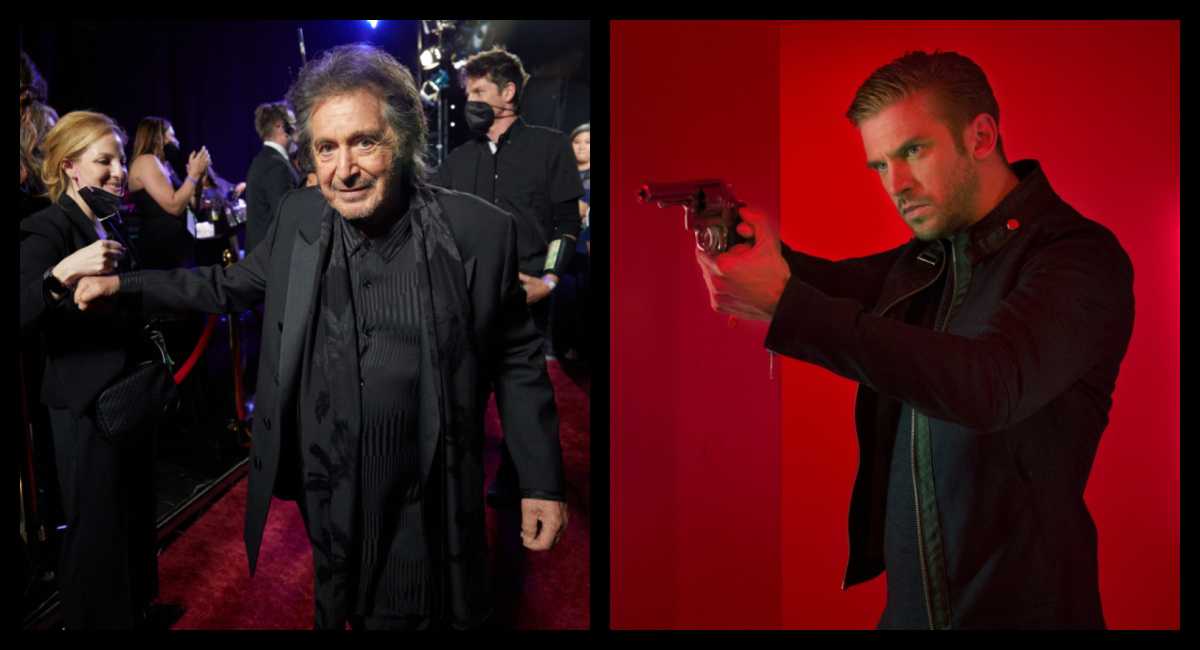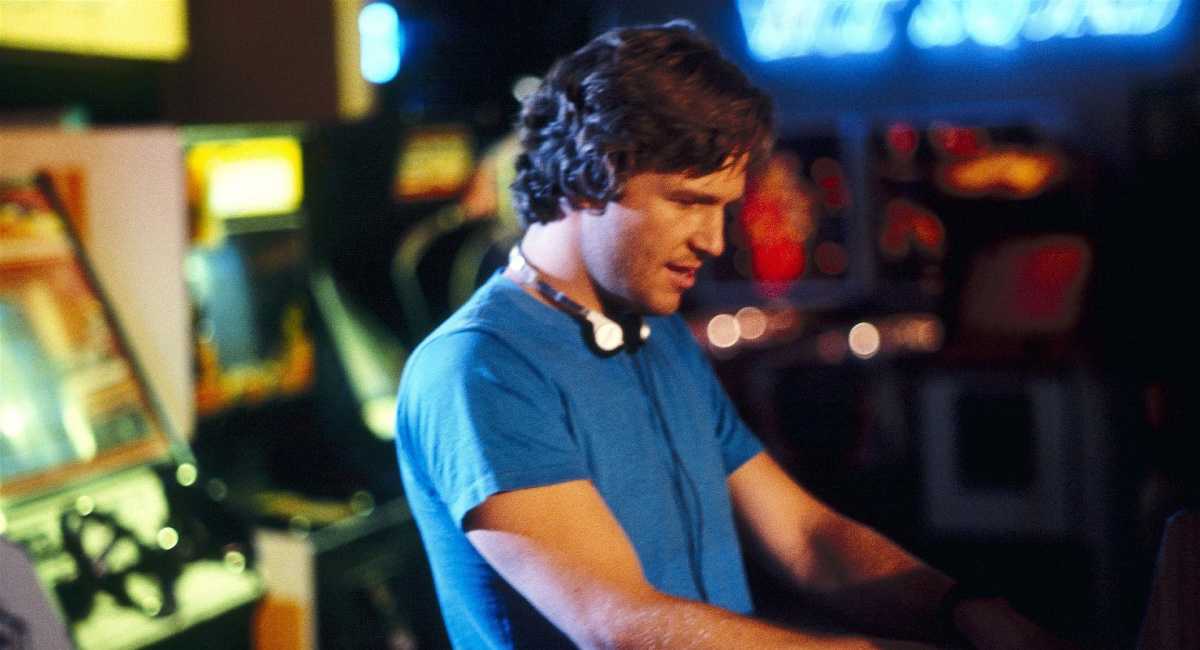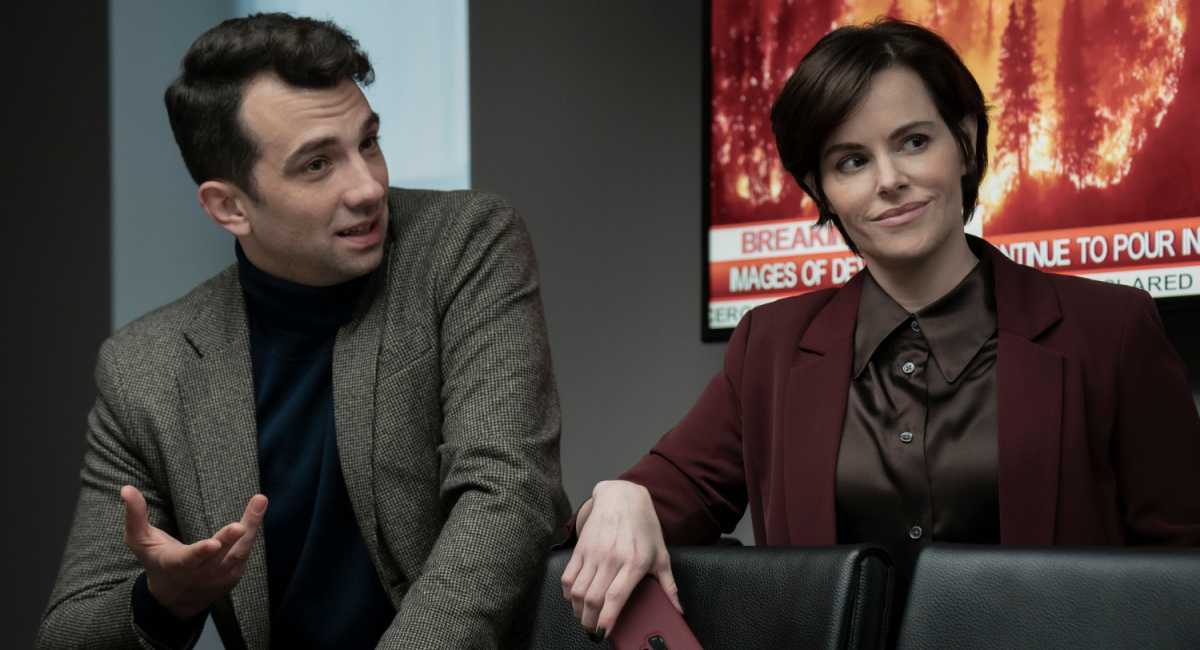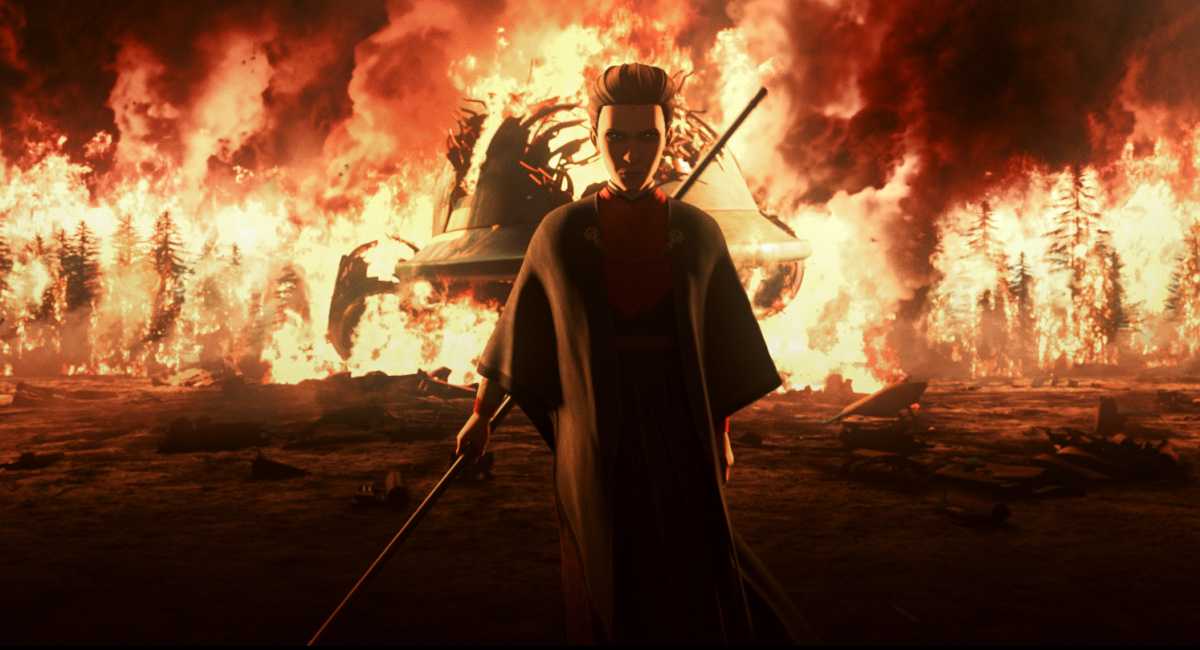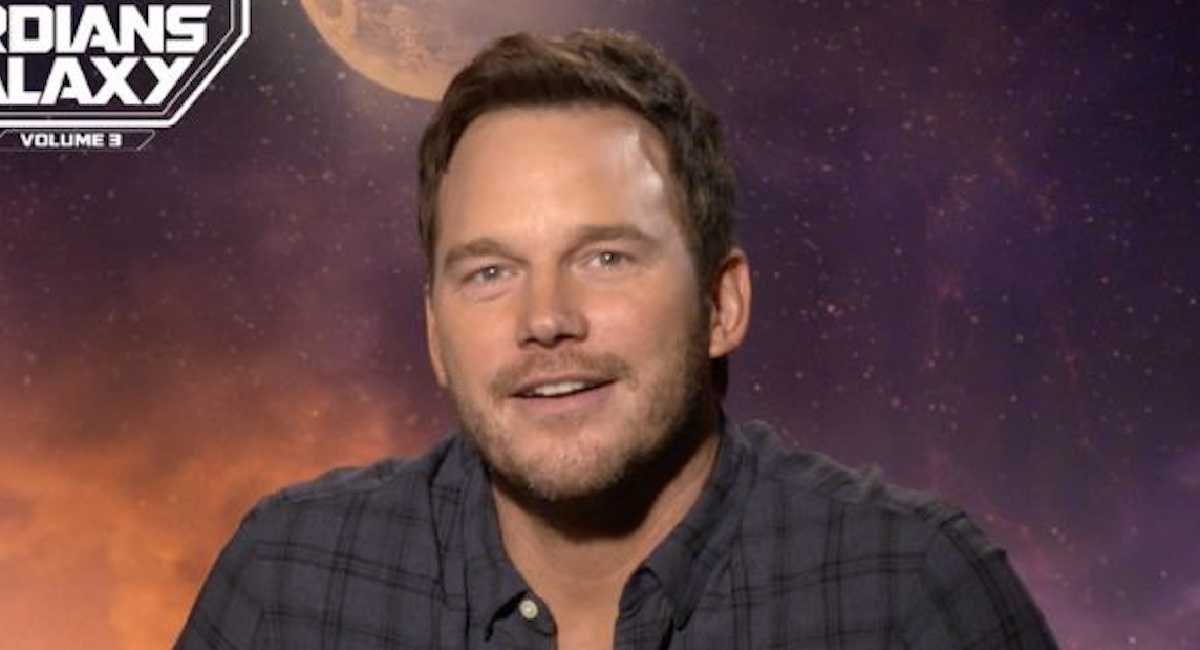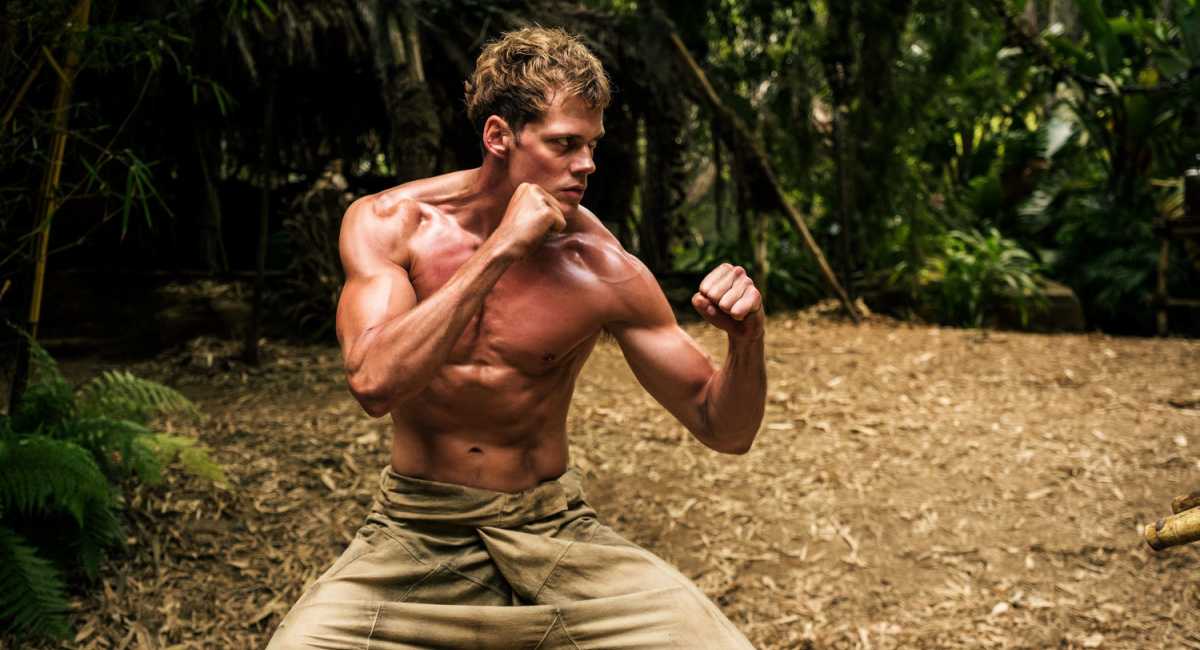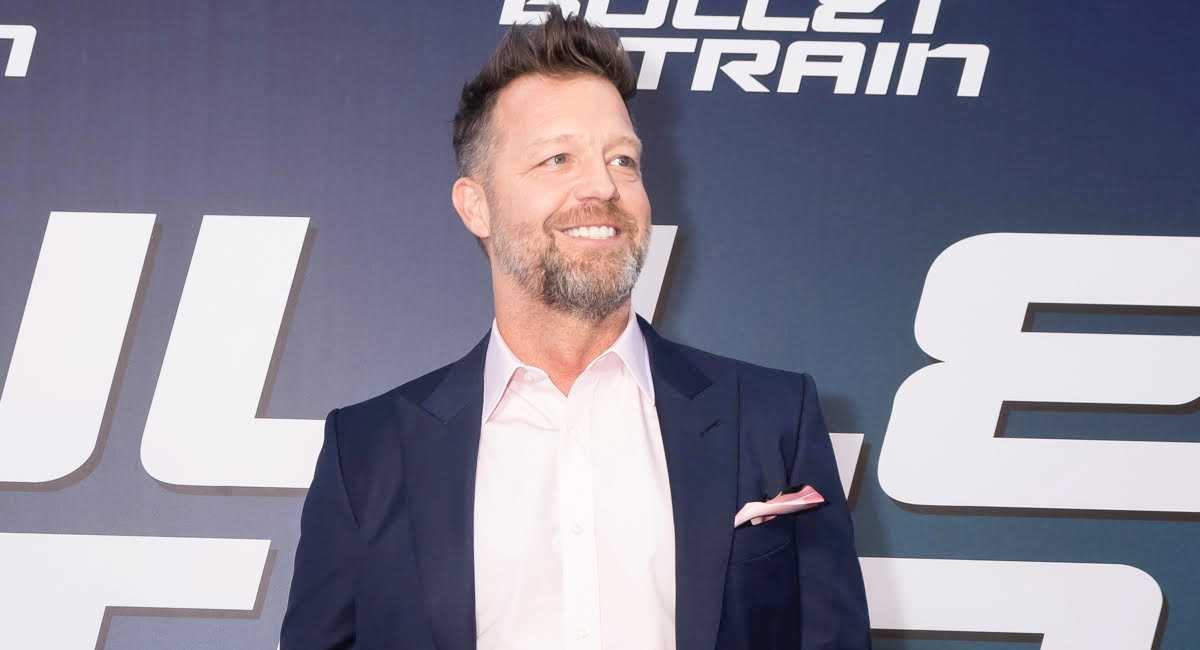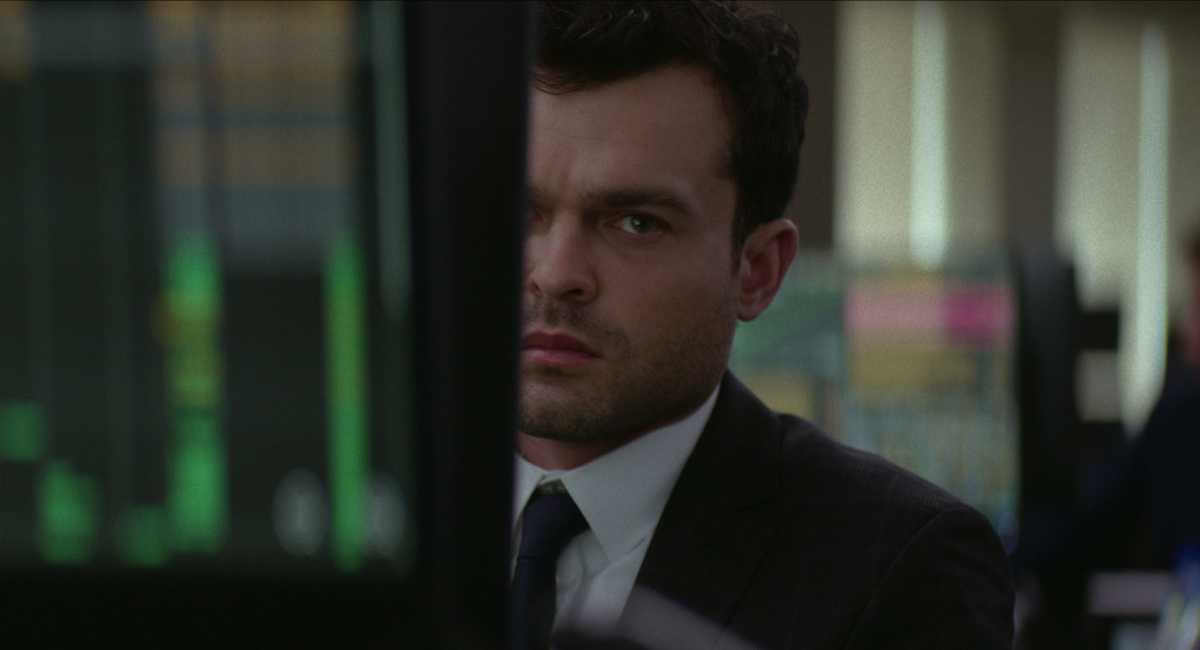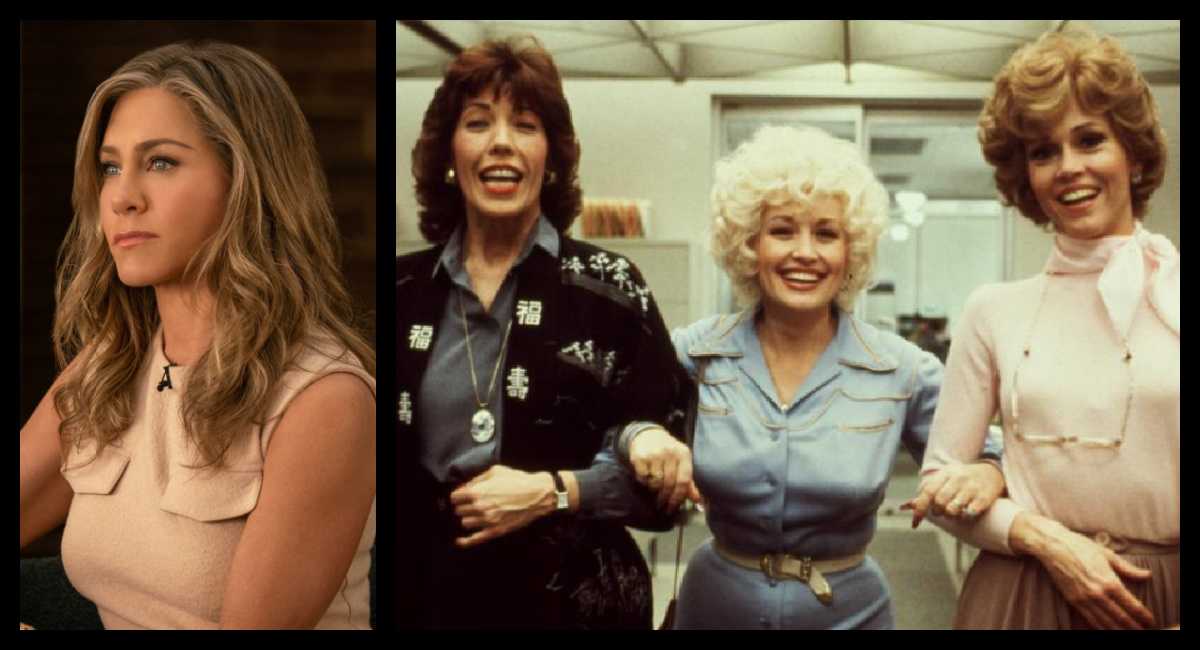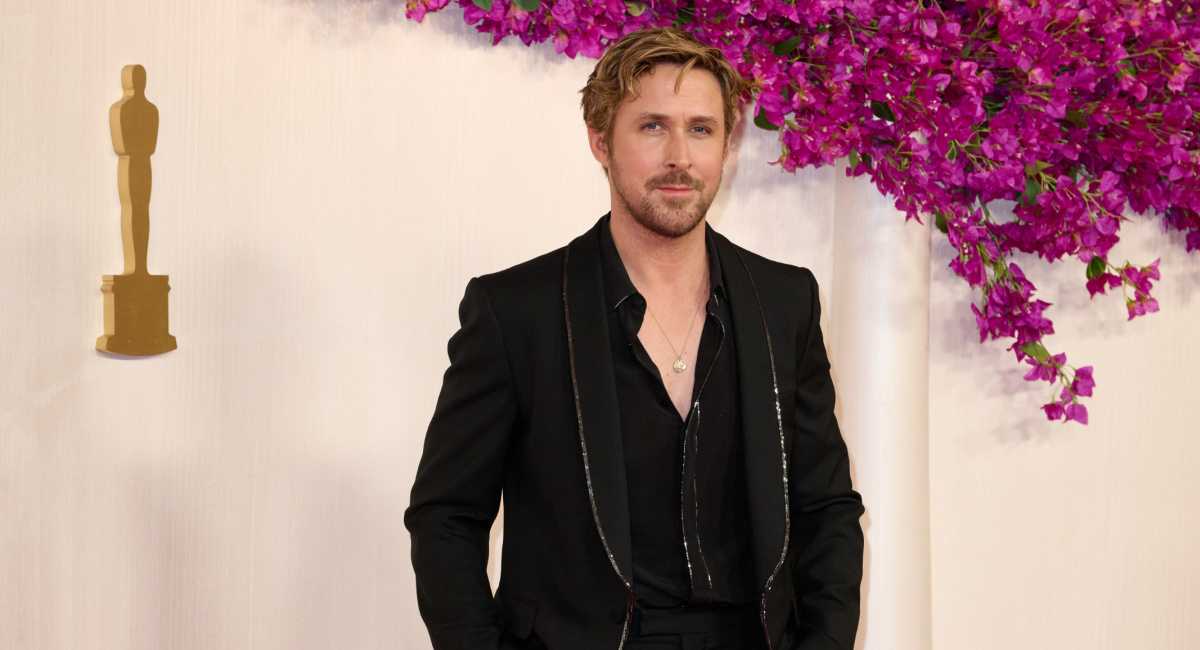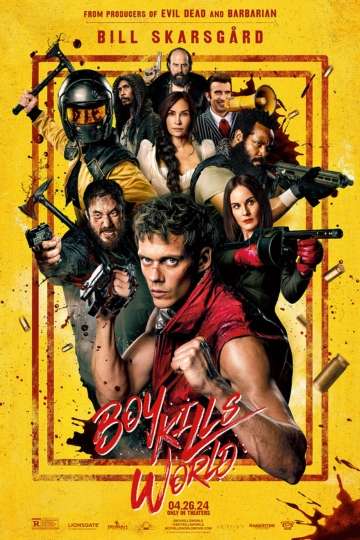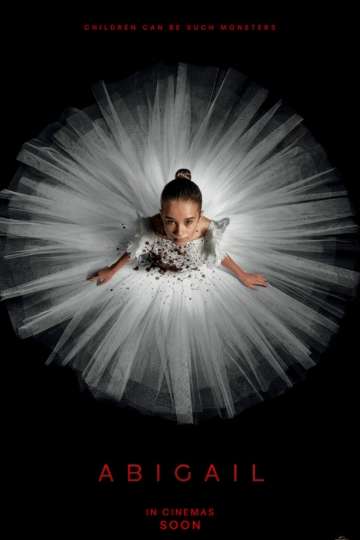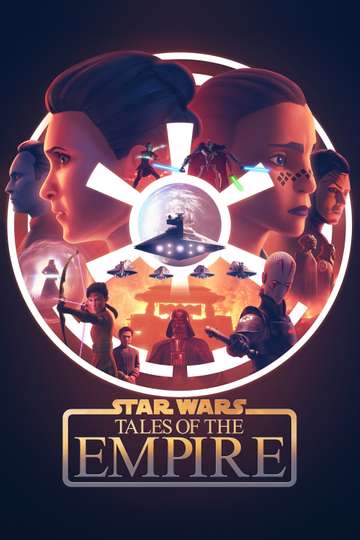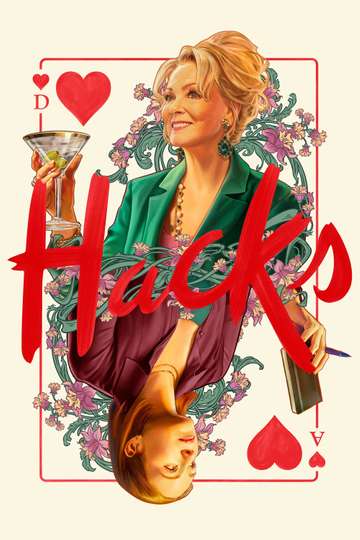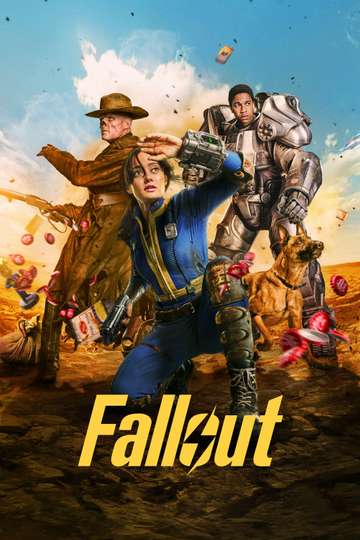Neill Blomkamp Is Sad More People Don't Explode In 'Chappie' (EXCLUSIVE)
In just three movies, South African filmmaker Neill Blomkamp (who now lives in Canada, actually) has established himself as a science-fiction visionary, fearlessly taking audiences into the distant future while reminding them very much of the world in which they live. This can mean shining a light on refugee aliens in a derelict Johannesburg in "District 9" (an allegory for immigration and Apartheid, amongst other things) and making the gap between the wealthy and the poor a glittery technological gulf exemplified by a ritzy space station in the unfairly maligned "Elysium."
In his newest film, "Chappie," Blomkamp returns to Johannesburg to focus on a broken police robot who is given a new personality chip by an intrepid inventor (Dev Patel) and then promptly stolen by a couple of low level thugs, played by Ninja and Yolandi Visser from the South African rap-rock outfit Die Antwoord. Oh, and Hugh Jackman plays a cargo short-wearing Luddite.
Sounds like a Neill Blomkamp movie, right?
We sat down with Blomkamp in New York recently and spoke about the response to "Elysium" (including the hilarious Sony leak that warned to marketers to de-emphasize the movie's sociopolitical commentary), why designing the main robot in "Chappie" was so difficult, Hans Zimmer's amazing, all-electronic score, and why exploding bodies is essential to his oeuvre.
Moviefone: Let's rewind for a minute and talk about "Elysium." Were you happy with how that turned out? Some things came out in the Sony leaks that made it seem like they were unsure of how to market it.
Neill Blomkamp: Sh*t, I was excited there for a minute man, like about something I didn't know about.
But were you happy with the film?
No. Not really. I haven't overly analyzed the film. I don't think I'll have specific enough answers for you but I feel like, generally, there are pieces of it that I really like. I love the core concept of it. I still love it. So much that I kind of want to go back and do it properly. Not remake it, but go back and do something in that world. But no... I just think as an artist or as a filmmaker, you either feel like you did what you were trying to do and you did it correctly... Or you didn't. And whether you can isolate those elements or not... I feel like "Elysium" wasn't perfect. And even if "District 9" and "Chappie" aren't perfect to other people, I feel like they're as close as I could get to that. That's all you really ask for. Where I didn't feel like that for "Elysium."
Was it the scale?
No. Scale is irrelevant. There's literally no difference between "Chappie" and "Elysium." I would put it down to the screenplay, if I had to pick one thing. But there's probably more factors than that. The story could have been better. I could have been more satirical, I feel like I was a little bit too direct.
So, this was not a calculated "let's get back down to a smaller movie"?
No. People ask me about that -- like the calculated smaller film, or they'll say things like, "Did you feel pressure after 'District 9'?" when I was making "Elysium." I don't feel any of that stuff. I just seem to feel instinctual choices. Maybe on a subconscious level, you know what I mean? But I'm not conscious of it. I'm just saying, "I love this movie about this robot; I want to make it."
You seemed to describe this movie as a much simpler comedy.
Did I say comedy though?
I thought you did.
I feel like there was confusion over this other project I want to do. Because around the time I was marketing "Elysium," I was talking about this other project, that I still want to do, that is a comedy, that I know I talked about. And then I spoke about "Chappie." And maybe they got mixed.
Can you talk about working with the Die Antwoord guys? Was that always in the mix?
That was there from the beginning. That was my choice from the second I came up with the idea. I came up with the raw idea while I was writing "Elysium." And the idea was basically one sentence: Die Antwoord raises a police robot that has artificial intelligence software loaded onto it. So they were a part of the concept from minute one.
Were you ever nervous that they couldn't pull it off?
No, because even outside of the realm of acting ability, which I suppose is somewhat untested although everyone knew they were performers from the music videos. So I knew that there was a weird magnetism that everyone would be drawn to. I think if actors on-screen have some sort of weird, undeniable magnetic thing that makes you intrigued by them, then you're in a good place. You can only go up from there. If they can say the lines and stuff, they're in a better place. And that's how it all worked out.
They're playing versions of themselves?
Yeah, they're versions of themselves. They're like humans at volume 11.
Can you talk about designing Chappie with WETA?
Well, I guess the design came from a couple of places. I first wanted it to trace back to my original short I did in 2003. Just because that short was about an autonomous robotics company that has replaced law enforcement in South Africa and that was very close to the idea of what "Chappie" was, so I thought it would be cool to link it back to the short, and at least have the name of the company in the short be the name in "Chappie." So I had a template of a design because I wanted to base it on that and I also had done a lot of thought processes in 2003. Because I knew the robot would be anthropomorphic and it would be designed in a cost-effective way for the police, so it could drive cars and go through doors and hold guns that the police use. So there were economic factors that made its design. And once those basic parameters were there, then it became movie design. Like, what do you want to do? So, if you think about it, it's a really hard design brief because the robots at the beginning of the film have to be taken seriously by criminals and the exact same design has to be this infant child who you have to sympathize with. That's a super weird design brief because they're in such opposition of each other. That made it super difficult, in the face mainly.
The ears help.
Yes, the ears are a huge help.
Chappie looks like some of the robots in "Elysium."
There are no ears in "Elysium." That's because I wrote "Elysium" and this idea came during the writing of "Elysium," because I was writing about those droids. "Chappie" was birthed out of that idea.
But there's not a shared universe?
Definitely not.
Was blood shed during the creative process of "Chappie"?
Blood is always shed. It's no one person or place's fault. It's just the nature of spending tens of millions of dollars of other people's cash on a creative endeavor. That doesn't come easily if you're trying to be specific about what you're trying to make. If you're more nonspecific, which seems like what most VFX films are, then it's easy. You're just like, "Oh, I can do that." I just don't want to answer to anyone. I just want to do my own stuff. And to do that, everything has to be self-funded. You have to answer to no one. So you have very understanding, cool studios, but you're still spending their money and have to justify what you're doing.
"Chappie" was relatively low budget, at least compared to "Elysium."
Yeah, sort of. It's not a cheap film.
Have you talked to Peter Jackson about this at all?
Pete has a really good model figured out. He is a very inspirational model when it comes to how to navigate Hollywood. He's done something pretty incredible. He's also created one of the coolest centers of creativity in film, which is WETA. It's pretty incredible what they pulled off.
Can you talk about working with Hans Zimmer on the score?
Zimmer might be my favorite crewmember -- or whatever the term is -- that I've ever worked with. I literally love that guy. He's got this great place in Santa Monica and it's like this candy factory of awesome creativity. It was such a cool process from beginning to end. There was no friction and no issues. We got into the process pretty late. We started composing later than we should have. I had a bunch of different ideas for how to do the music but it never congealed correctly. I knew I wanted something electronic. So when I went to him I said, "Can this be all electronic? Like, not a single organic instrument in the entire thing? And could we put '70s/'80s synth in there?" And the idea of hearing synth with more of an action theme is a really interesting concept, and he wanted to do the same thing and over the years had bought up all of these very specific Roland synthesizers. I think you can't actually get them because he has most of them now, so someone couldn't even emulate the sound. And he didn't orchestrate a single thing -- it's all-digital mixed with synthesizer. I love how it sounds. Music is a huge part of filmmaking to me. And that score just feels like, to my ears, it's exactly perfect to the movie.
One of the hallmarks of your films is someone exploding.
I couldn't do as much of that in this film, unfortunately. The problem is the main robot that we follow around is this innocent child. I actually had one more thing that he did to Hugh Jackman at the end but I pulled back on it, reluctantly. But it was the correct choice for the character. I won't say what it is. Maybe I'll put it on the Blu-ray. But he f*cked him up. The theme and the idea of the film didn't allow for the exploding of people, which is essential. So I may do that in the next one, if I do one.
